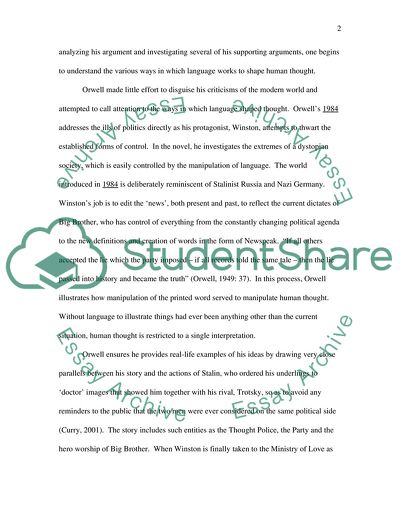Cite this document
(Orwell's Animal Farm Book Report/Review Example | Topics and Well Written Essays - 1500 words, n.d.)
Orwell's Animal Farm Book Report/Review Example | Topics and Well Written Essays - 1500 words. https://studentshare.org/politics/1712402-english-literature-george-orwell-paper-2
Orwell's Animal Farm Book Report/Review Example | Topics and Well Written Essays - 1500 words. https://studentshare.org/politics/1712402-english-literature-george-orwell-paper-2
(Orwell'S Animal Farm Book Report/Review Example | Topics and Well Written Essays - 1500 Words)
Orwell'S Animal Farm Book Report/Review Example | Topics and Well Written Essays - 1500 Words. https://studentshare.org/politics/1712402-english-literature-george-orwell-paper-2.
Orwell'S Animal Farm Book Report/Review Example | Topics and Well Written Essays - 1500 Words. https://studentshare.org/politics/1712402-english-literature-george-orwell-paper-2.
“Orwell'S Animal Farm Book Report/Review Example | Topics and Well Written Essays - 1500 Words”. https://studentshare.org/politics/1712402-english-literature-george-orwell-paper-2.


